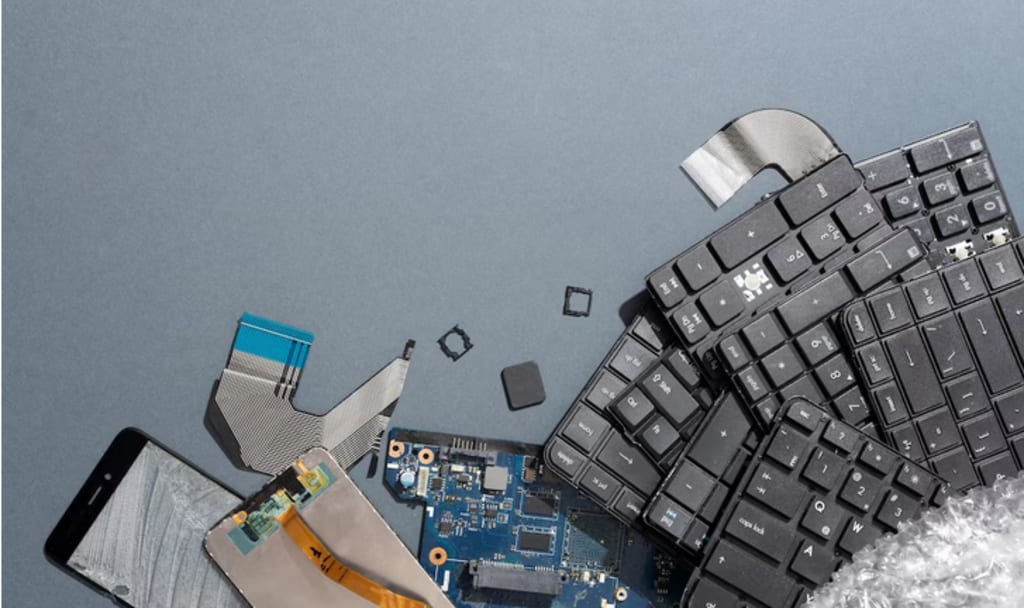Clearing the Digital Clutter: How Electronics Recycling Service Can Help
electronics recycling services

Introduction:
In today's fast-paced digital age, electronic devices have become an integral part of our daily lives. We rely on them for communication, work, entertainment, and much more. However, the rapid advancement of technology also leads to a significant problem - electronic waste. Disposing of electronic devices improperly poses environmental and health risks due to the presence of hazardous materials. To address this issue, electronics recycling services have emerged as a valuable solution. This article explores the concept of electronics recycling, the benefits it offers, and provides answers to frequently asked questions.
1: Understanding Electronics Recycling
Electronics recycling, also known as e-waste recycling, refers to the process of collecting, refurbishing, and repurposing electronic devices and their components instead of discarding them. This practice ensures that electronic waste is properly managed, and valuable materials are recovered for reuse. Through recycling, the lifecycle of electronic devices is extended, reducing the need for raw materials and minimizing environmental impact.
2: Benefits of Electronics Recycling
2.1 Environmental Benefits:
Electronics recycling offers several environmental advantages. Firstly, it reduces the demand for extracting new raw materials, such as metals, plastics, and rare earth elements. By reusing these materials, we can conserve natural resources and reduce the energy-intensive processes required for extraction. Additionally, recycling electronics prevents the release of hazardous substances like lead, mercury, and cadmium into the environment, protecting soil, water, and air quality.
2.2 Health and Safety:
Proper electronics recycling ensures the safe disposal of hazardous materials, safeguarding public health and the environment. Many electronic devices contain toxic components that, if not disposed of correctly, can leach into the soil and water sources, posing risks to human health and wildlife. By recycling electronics, we prevent the release of these harmful substances and mitigate potential health hazards.
2.3 Resource Conservation:
Electronics recycling contributes to resource conservation. Valuable materials, including precious metals like gold, silver, and copper, can be recovered from recycled electronics. By extracting and reusing these materials, we reduce the need for mining and processing virgin resources, conserving energy and reducing greenhouse gas emissions associated with resource extraction.
3: Frequently Asked Questions about Electronics Recycling
Q1: What types of electronic devices can be recycled?
A: A wide range of electronic devices can be recycled, including smartphones, laptops, desktop computers, tablets, televisions, printers, cameras, and gaming consoles. It is important to check with local electronics recycling services to determine which items they accept.
Q2: How can I prepare my electronics for recycling?
A: Before recycling your electronics, it is advisable to remove any personal data and information from the device. Back up important files, perform a factory reset, and ensure that all accounts and passwords are removed. Additionally, separate any accessories such as chargers, cables, and batteries, as they may require separate recycling processes.
Q3: Where can I recycle my electronic devices?
A: Recycling options vary depending on your location. Many municipalities provide electronic recycling programs or host collection events. Additionally, there are specialized e-waste recycling centers, drop-off points, and mail-in programs available. Researching local resources or contacting waste management authorities can help you locate the nearest recycling options.
Q4: What happens to electronic devices after they are recycled?
A: After collection, electronic devices are transported to recycling facilities. Here, they undergo careful dismantling, separating various components such as circuit boards, wires, and metals. Valuable materials are extracted for reuse, while hazardous substances are disposed of safely. The recycled materials can then be used in the manufacturing of new products.
Q5: How can I ensure that my electronics are recycled responsibly?
A: To ensure responsible recycling, it is advisable to choose certified electronics recycling services. Certified recyclers adhere to industry best practices for environmental and data security standards. They follow strict protocols to minimize environmental impact and protect personal information throughout the recycling process.
Conclusion:
Electronics recycling services play a crucial role in managing electronic waste and mitigating the environmental and health risks associated with improper disposal. By recycling our electronic devices, we can conserve resources, reduce pollution, and promote a circular economy. Additionally, responsible electronics recycling ensures the safe handling of hazardous materials and protects our health and the environment. It is imperative for individuals, businesses, and policymakers to support and actively participate in electronics recycling initiatives. Together, we can clear the digital clutter and create a sustainable future for generations to come.
About the Creator
Enjoyed the story? Support the Creator.
Subscribe for free to receive all their stories in your feed. You could also pledge your support or give them a one-off tip, letting them know you appreciate their work.





Comments
There are no comments for this story
Be the first to respond and start the conversation.